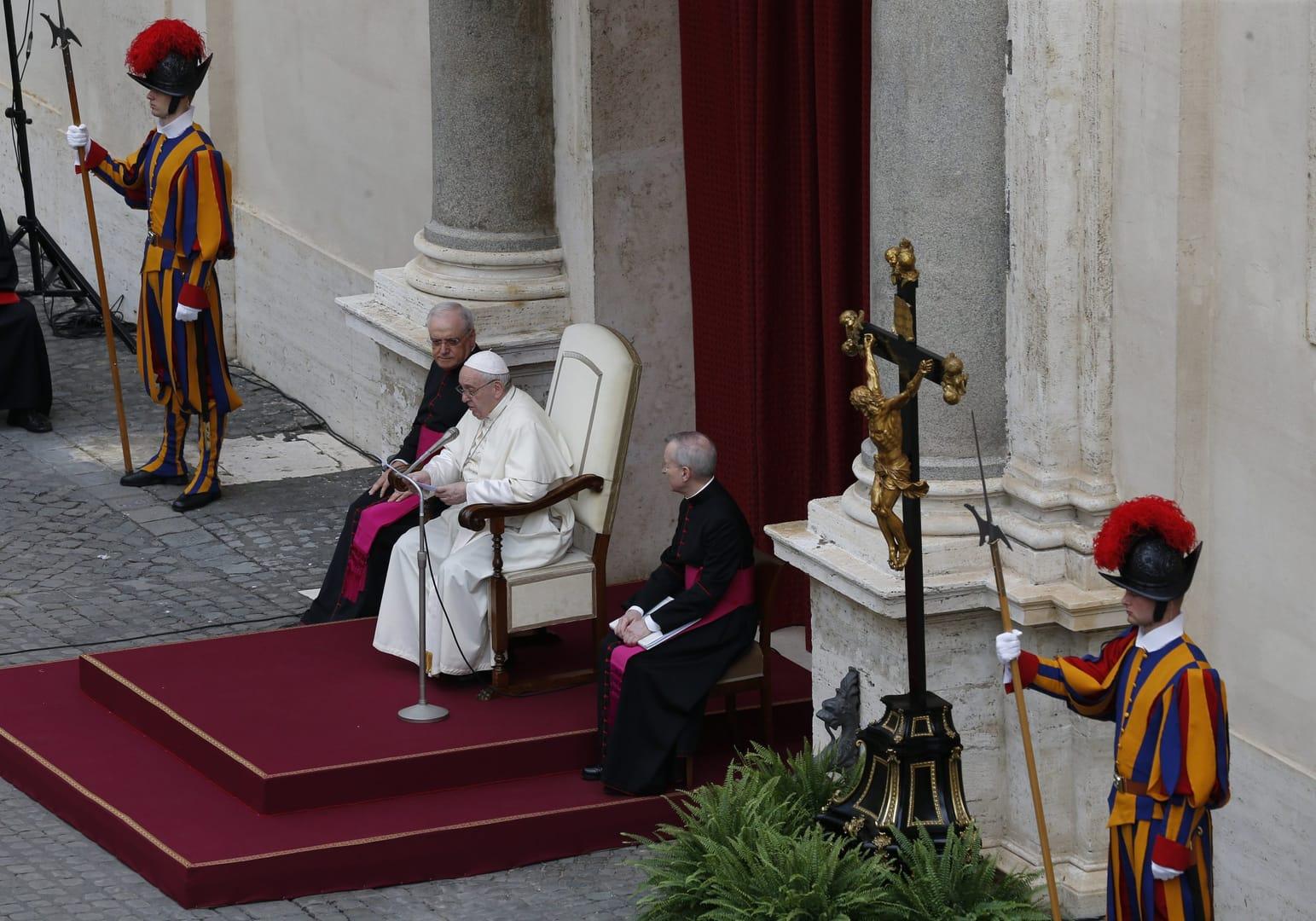ROME – During his first general audience with members of the public since the COVID-19 coronavirus brought the weekly meetings to a halt in March, Pope Francis issued a lengthy appeal for Lebanon as it nears the one-month anniversary of a massive explosion that rocked the port of Beirut, leaving at least 190 people dead, with thousands left homeless and injured.
“Dear brothers and sisters, one month from the tragedy that hit the city of Beirut, my thoughts go again to Lebanon, and to the people who are suffering most,” he said during his Sept. 2 address, and, quoting St. John Paul II, added, “Before all the dramas that each inhabitant of this country knows, we are aware of the extreme danger that threatens the very existence of the country.”
“Lebanon cannot be abandoned in its solitude,” Francis continued, noting that for more than 100 years Lebanon has been “a country of hope,” particularly in terms of faith.
“Even during the darkest moments of its history, the Lebanese conserved their faith in God, demonstrating their ability to make their country a land of tolerance, of respect, of coexistence. The only one in the region,” he said, adding that Lebanon is “more than a state, Lebanon is a message of freedom, it’s an example of pluralism for both the East and the West,” the pontiff said. “For the good of the country itself, but also for the world, we cannot allow this patrimony to go missing.”
Francis spoke to the roughly 500 pilgrims in the Vatican’s San Damaso courtyard, where his weekly general audiences are being held on a smaller scale to prevent the massive crowd buildup that happens in St. Peter’s Square.
Cheers echoed through the courtyard as Francis entered on foot, stopping to greet pilgrims as he walked up to the platform where he gave his speech, which appealed for solidarity and for care of the environment.
After closing his address, a priest carrying the Lebanese flag was called up to the platform where the pope was seated. The priest, Father Georges Breidi, is a member of the Lebanese Maronite Missionary Congregation and a student in Rome. He knelt down next to the pope as Francis grabbed the other side of the flag while making his appeal.
The Aug. 4 explosion was caused by 2,750 tons of ammonium nitrate which had been stored unsafely inside of a warehouse in the Beirut’s port, and it was powerful enough to be felt in Cyprus, nearly 150 miles away. The whole capital trembled from the impact of the blast, and numerous videos taken showed a large mushroom cloud rising and spreading over the port area.
The explosion, which many locals have argued was related to government corruption, exacerbated an already fraught situation in Lebanon, which is suffering a dire financial crisis while attempting to combat the COVID-19 pandemic.
In his remarks, Francis urged the people of Lebanon to “continue to hope and to find the strength and energy necessary to start again.”
He urged politicians and religious leaders “to commit with sincerity and transparency in the work of rebuilding, casting away partisan interests and looking to the common good and the future of the nation.”
Addressing the international community, Pope Francis pleaded for assistance in helping Lebanon rise above its woes without getting sucked into regional tensions.
He urged Christians and those most directly impacted by the blast not to lose hope, telling them to “Have courage again, brothers, faith and prayer are your strength. Don’t abandon your houses or your heritage. Don’t let go of the dream of those who believed in a country that is beautiful and prosperous.”
Speaking to bishops, priests and consecrated in the country, Francis urged them to accompany their people and asked them to embrace poverty, saying “No luxury, (but) poverty with your poor people who are suffering. Give them yourselves the example of poverty and humility. Help you faithful to rise again, and to be the protagonists of a new rebirth.”
The pope then announced that Friday, Sept. 4 will be a day of prayer and fasting for Lebanon, adding he will send the Vatican Secretary of State, Italian Cardinal Pietro Parolin, to Lebanon on that day “to express my closeness and solidarity.”
After Francis closed his appeal, Breidi thanked the pope for his remarks, saying, “we greatly need your support, and of the support of the universal Church…we cannot continue to live like this in Lebanon.”
“Until now, more than 130,000 Christians have presented their documents for emigration,” he said, adding, “We need their prayers, your support and your fraternal love. We await you to bless our beloved country.”
Follow Elise Ann Allen on Twitter: @eliseannallen












